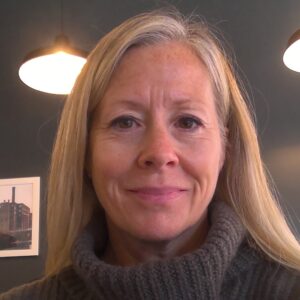
Health behaviors of athletes with intellectual disabilities competing at Special Olympics World Games: Sport Comparisons
Abstract Overview
Background: Individuals with intellectual disabilities (ID) experience disparities in physical activity (PA) and fitness due partly to limited access to opportunities. Special Olympics (SO), an international sport organization that serves 3+ million athletes with ID, provides opportunities to develop fitness through programming, education, and advocacy. Understanding health behaviors across athletes competing in varying sports can inform and improve SO fitness programming.
Purpose: To examine differences in PA participation and health behaviors among a global sample of athletes with ID across sport types.
Methods: A survey was developed to gather self-reported health behaviors from athletes with ID competing at SO World Games in Berlin. Questions on moderate and vigorous PA, walking, strength training, sedentary behavior, sleep, and self-rated health were included. The survey was translated into 7 languages and administered on a tablet. Sports were categorized into four groups: power, mixed, skill, and endurance.
Results: 413 athletes competing in 24 sports from 90 countries participated. Only 16.4% of athletes across all sport groups participated in 30+ min/day of PA on 5+ days/week. Overall, 82% of athletes sleep 7+ hours/night and 84% reported their health was good-excellent. About 9% of athletes sit for 8+ hours/day. Some significant differences existed in PA participation across sport groups: 58.7% of athletes in skill sports reported engaging in vigorous PA vs. 91.2% of endurance athletes (χ2 = 17.3, p<.001); 49.0% of athletes in skill sports reported engaging in strength training vs. 80.8% of power athletes (χ2 = 16.9, p<.001).
Conclusions: Athletes reported low overall levels of PA with significant differences in vigorous PA and strength training across sport groups.
Practical Implications: There is a need for SO to expand fitness programming worldwide, and to lead efforts around increasing access to PA for individuals with ID to address disparities in participation.
Funding: US CDC #NU27DD000021; Golisano Foundation.
Additional Authors
Name: Heidi Stanish
Affiliation: University of Massachusetts Boston
Presenting Author: yes
Name: Monica Forquer
Affiliation: George Washington University
Presenting Author: no
Name: John Hanley
Affiliation: Special Olympics International
Presenting Author: no
Name: Andrew Lincoln
Affiliation: Special Olympics International
Presenting Author: no
Name: Gwendolyn Apgar
Affiliation: Special Olympics International
Presenting Author: no
Name: Melissa Otterbein
Affiliation: Special Olympics International
Presenting Author: no
Name: Alicia Dixon-Ibarra
Affiliation: Special Olympics International
Presenting Author: no

